Fighting for the Whole
can we have each other's backs?
Think about all the people you rely on in your struggles, whether you like them or not. Think about what skills they bring, and what’s hardest about them. Are they fighting for a career, for status, for power over other people in their circles, for their egos? Are their intentions good, but they’re waging their own private crusade? Are they disconnected, with no other options but turning their skills into something marketable in order to pay the rent? Or are they fighting for the whole?
Now ask these same questions of yourself.
I expect that conversation to come up in the talks I’m giving this week.
I’m in Milwaukee today.
In Madison on the 19th.
In Indianapolis on the 20th.
And Bloomington on the 21st.
If you know anyone in Wisconsin or Indiana, send them these posters, and if you’re in any of these cities, I hope you can make it!
And if you can’t make it, below I’m including a longer selection from Organization, Continuity, Community, one of the two books I’ll be talking about, along with a few questions you might want to discuss with your friends and other people you struggle alongside.
But first, there’s two things I want to recommend:
In the last newsletter, I asked if anyone had any critical thoughts on the attempt at a subversive spectacle, in Kendrick Lamar’s Superbowl halftime show. In “The NFL Is a Plantation!” Feel The News says definitely not:
The NFL is a plantation! There is absolutely no way to perform on a plantation in a revolutionary manner unless your performance leads to a revolt that burns down the plantation. Performing on a plantation is as revolutionary as buying a Che Guevara t-shirt. Vapid and does nothing but support the system you claim you are objecting to.
Most people who buy a Che Guevara t-shirt do not care about the masses rising up and revolting against the ruling class. If you are wearing a Che Guevara shirt and are currently doing mutual aid, I’m so sorry for my generalization. I was scarred by too many white kids who wore Che Guevara shirts and converses.
Nonetheless, my point is commodifying Black revolutionary symbolism while dancing on a stadium built on the trodden bodies of Black men who aren’t paid enough for their labor reifies white supremacy, it does not denigrate it. It’s not even reformist. It’s harmful. It creates the narrative that to be a revolutionary is to be a member of the Black bourgeoisie who will figuratively roast America on stage for a payday while doing absolutely nothing to threaten the existence of a fascist state. It creates the narrative that acquiring wealth from white supremacist structures as long as you tacitly “resist” is revolutionary. Roasting America figuratively will not lead us to freedom, only literal roasting will do so.
Part II of “It’s Revolution or Death!” is out! This is a three-part video series I’m working on with Sub.media about the ecological crisis and an ecological revolution. Part III should come out in March. When it’s all done, what we hope to have for you is a compelling set of short videos that effectively explain why the institutions currently in power are incapable of “fixing” the ecological crisis and what an ecological revolution that actually gets to the root of the problem might actually look like – not how we can join it, not the instructions we need to follow to be a part of it, but how we’re already a part of it, how we can imagine it and help develop it from our own unique standpoints.
There’s so much bullshit circulating, on the Right and the Left, about the nature of the problem and what sorts of responses are realistic or adequate, it’s vital to spread accurate analysis that also encourages people to bring their own intelligence and their own perspectives to our collective responses. Will you help spread it?
Part II is based on interviews with people in struggle on three different continents, on land occupied by the Canadian, French, and Brazilian states. It’s an inspiring look at what we can accomplish, in very different contexts. Hopefully a motivation and a set of experiences to learn from for Part III, which will look at figuring out how to fight from where we stand, since no blueprint or model can address all the complexities of each unique place on the planet, every inimitable blend of experiences that each of us have been formed from.
“Heads Up, the Revolution Is Already Here”
So, below is an extract from Organization, Continuity, Community, describing different roles, different forms of skills and powers we might each exercise in the struggle. Presently, I think many of us don’t do much to recognize and hone the strengths we contribute, nor do we see things in a communal way, recognizing that what we do, we do with others, so we can have one another’s backs, making sure our strengths and weaknesses overlap so we don’t leave any vulnerable points.
Keep in mind that in the text, I problematize the overused concept of “community”. It’s not a community unless your survival depends on it, unless you wouldn’t be who you are outside of that context. A community is not a group of friends.
Nonetheless, friendship is wonderful, and necessary, so talk about these roles with your friends, if you can.
How do you see one another?
Which of these roles are valued and rewarded in your movements, your pseudo- or proto-communities?
Which roles are completely vacant?
How are some of these roles misused for personal power, or completely exploited and disrespected?
How could that be improved?
I think you’ll find a common theme is that in our circles, there is a culture of extreme avoidance: we don’t give criticism, and we don’t receive it. But consider the following a literal fact: without feedback, a network is not a network. It is just an alienated collection of dead weight and inert matter.
I believe a huge part of the ineffectiveness and the lack of continuity in our struggles is due to our failure to recognize these roles and differences (hiding them in a smokescreen of pretense as we strive towards that democratic ideal of all being equal and interchangeable comrades). Since we do not recognize these roles, we are not able to create a healthy complementarity between them. The result is that we have hierarchies we cannot name and struggles that are completely imbalanced.
I propose that each person could fill one, two, or at the most three of these roles. It is possible an individual might feel identified with even more, but to be realistic they would not have the time to learn the knowledge and skills necessary to exercise so many responsibilities.
Fighters. Promote collective self-defense and take risks to defend the community and attack the structures that put us in danger. They should not pursue a war according to their own criteria, but should rather put themselves at the disposal of the community.
Healers. Develop the capacity of the community and its members to heal themselves and to be healthy. In particular they should work closely with the fighters and others who face elevated health risks for the common good.
Caretakers. Accompany people with less bodily autonomy, like children, the elderly, and people with some disability or physical limitation.
Builders. Design, set up, develop, and fix the community's infrastructures and structures, from gardens to houses. Not everyone who uses tools or helps in construction is a builder, since widespread participation in community work days is expected; rather, the builders are those with the knowledge necessary to organize and guide communal works. The others will have to make an effort to keep the builders connected with critical ideas, because capitalism usually has a relatively easy time buying out this kind of person.
Links. Travel and communicate, and in so doing they maintain the contacts between their community and a whole web of other communities and struggles on the regional and international levels. They tend to be people with a great deal of social and linguistic ability, speaking multiple languages and being able to adapt to different cultures. They don't practice tourism, as many Western radicals do nowadays, but instead they always travel and visit neighboring communities with a communitarian gaze, to weave networks, to share resources, and to make sure that information flows. This kind of person, without a communitarian gaze, quickly becomes an influence trafficker or movement authoritarian.
Mediators. Calling on an immense internal tranquility and extensive relations, they guide the community in moments of elevated conflict. They do not lay down the law nor impose solutions, but help the conflicted parties once again find the ability to live together, and they help the whole community learn and grow.
Mediums. Are not necessarily artists, since Art is a bourgeois category and all of us could carry out our labors with more art, free of the pressures of the capitalist market. They are people who channel intense experiences and other ways of seeing the world, whether through singing, painting, or any other expression, and share it with the community.
Storytellers. Help to voice the experiences of the community, to remember and tell their collective history or create stories that help others make sense of their situation.



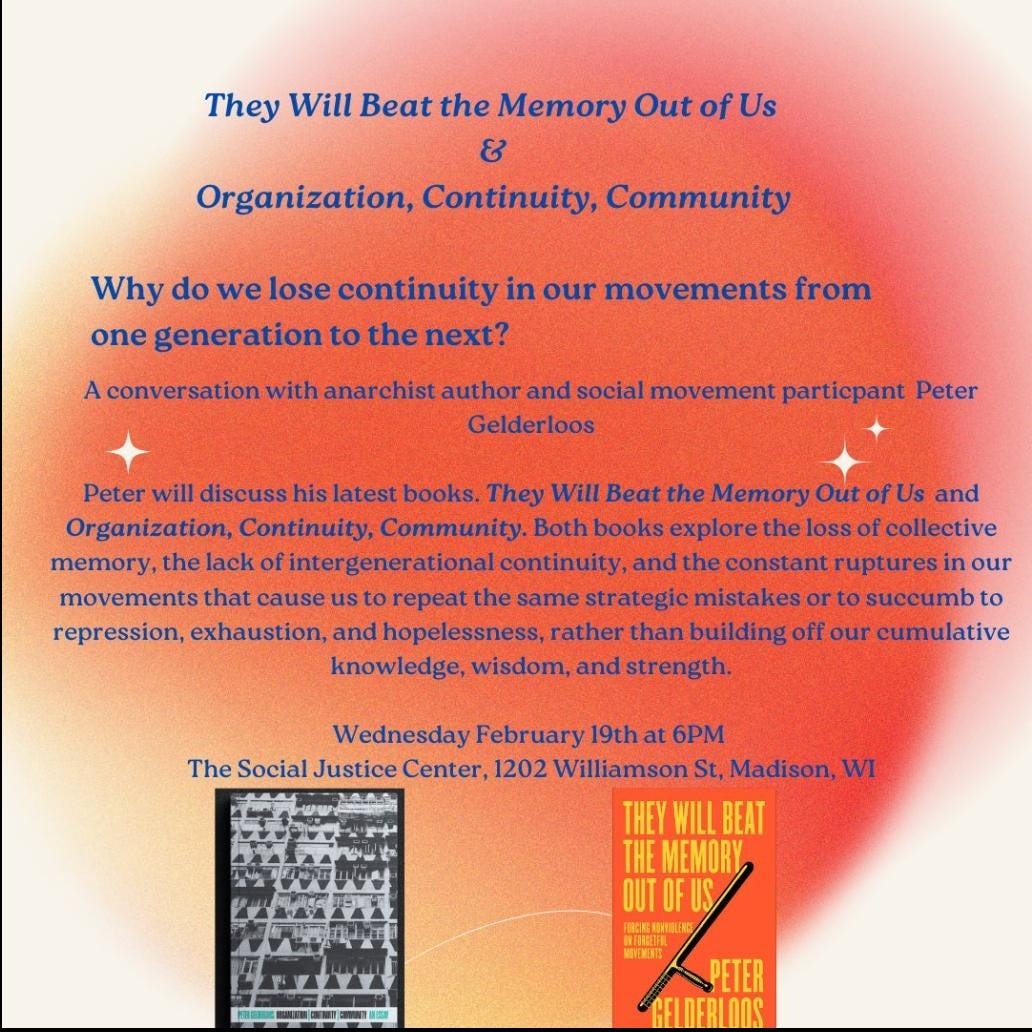
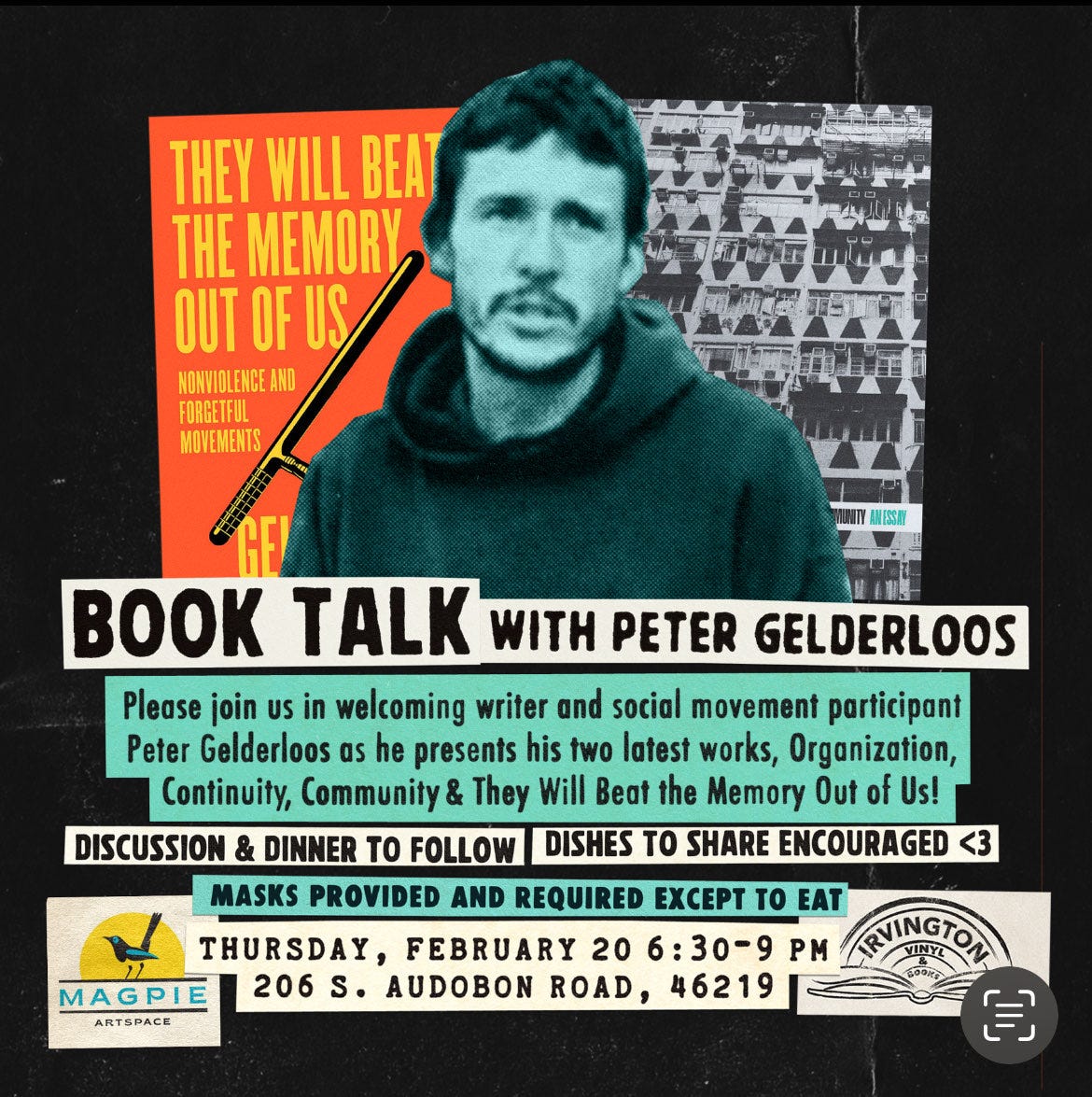
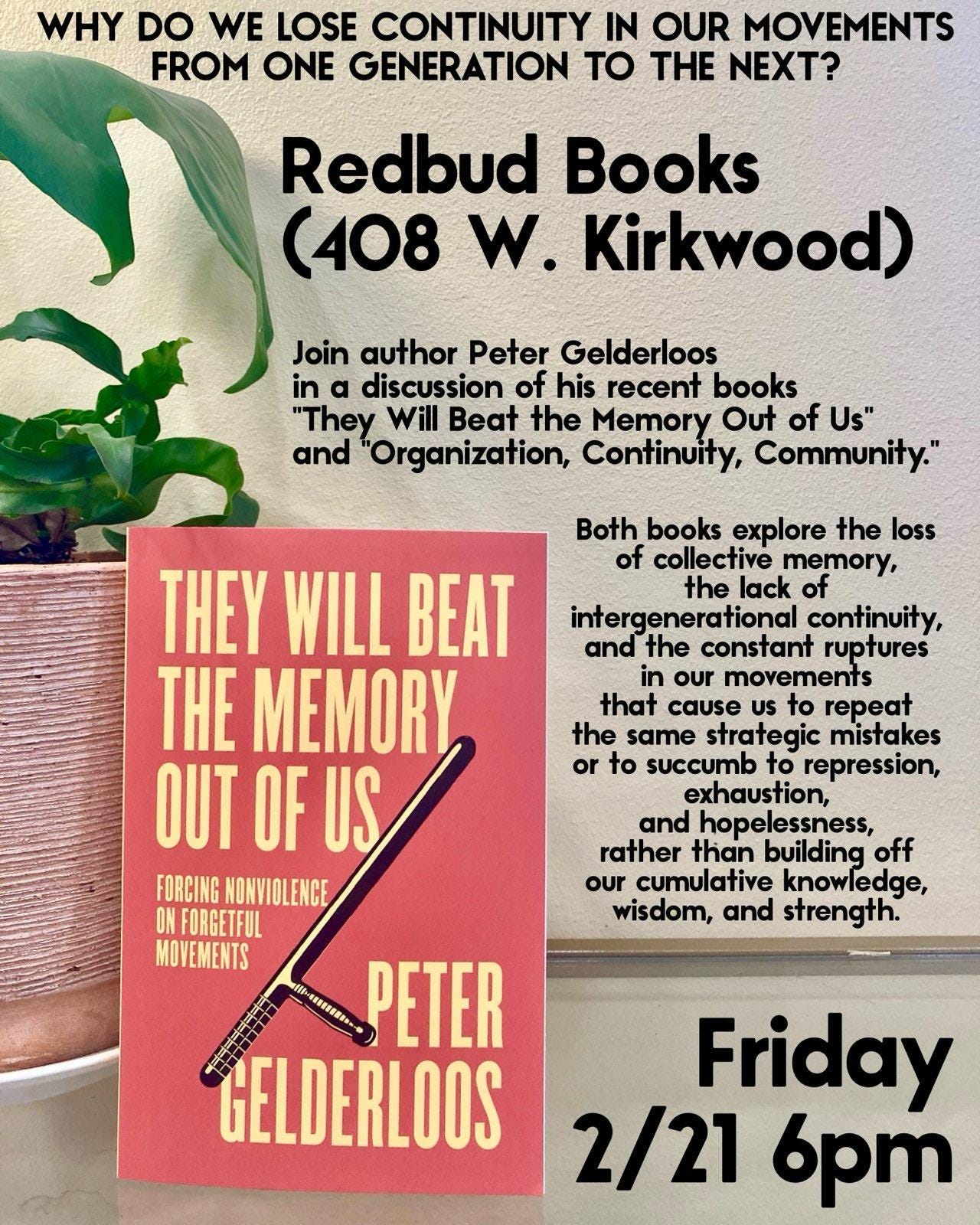

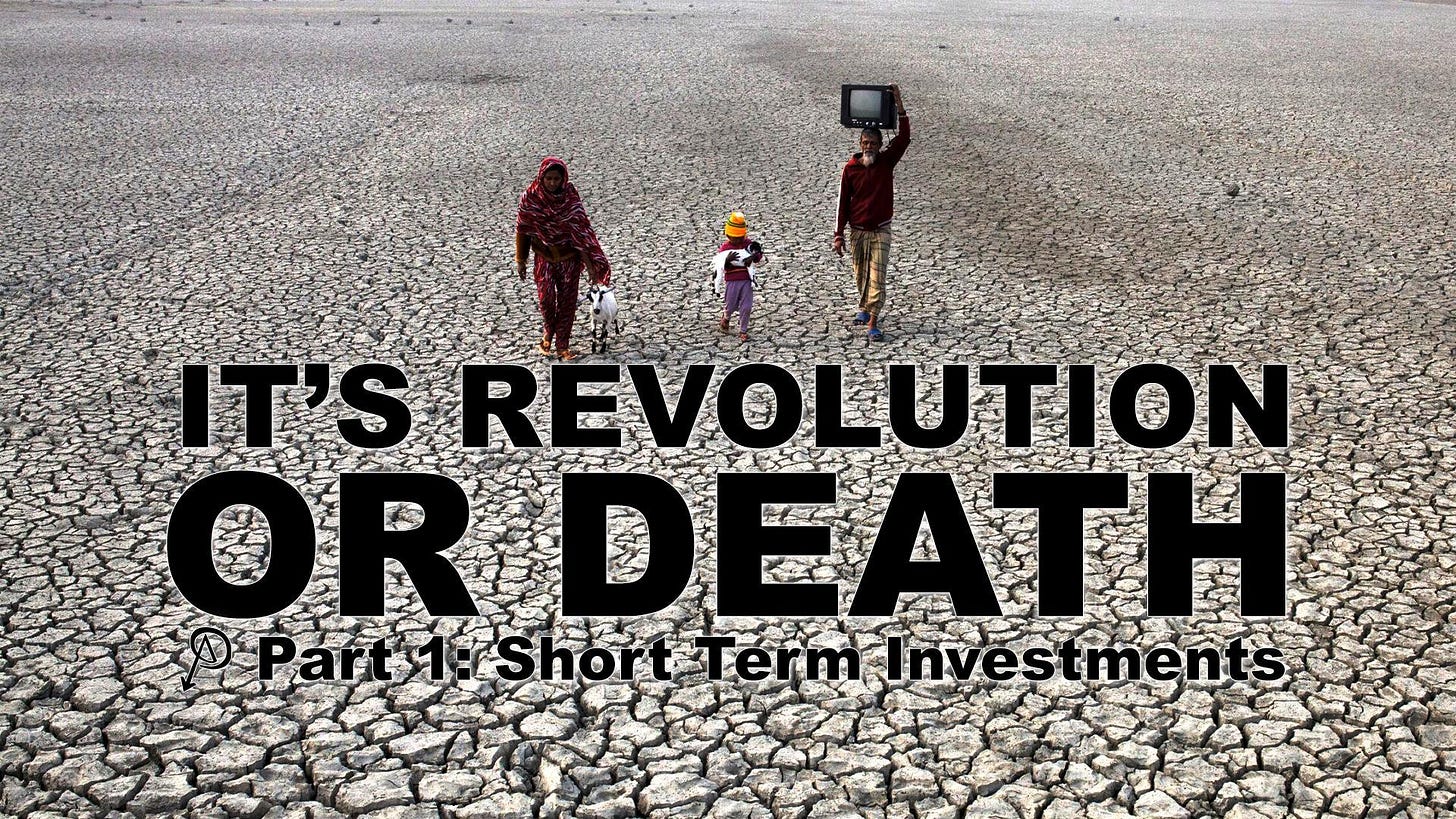
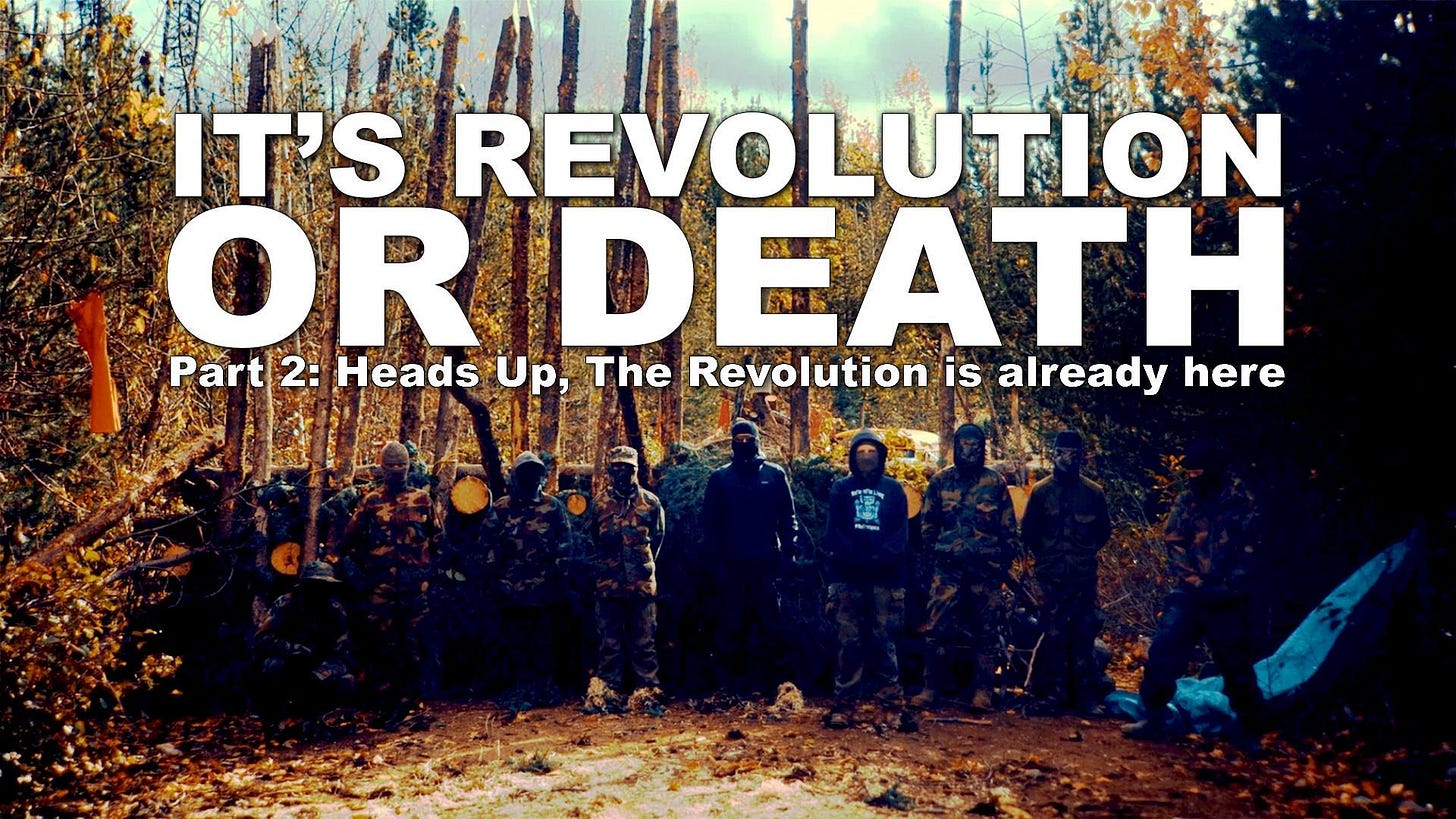
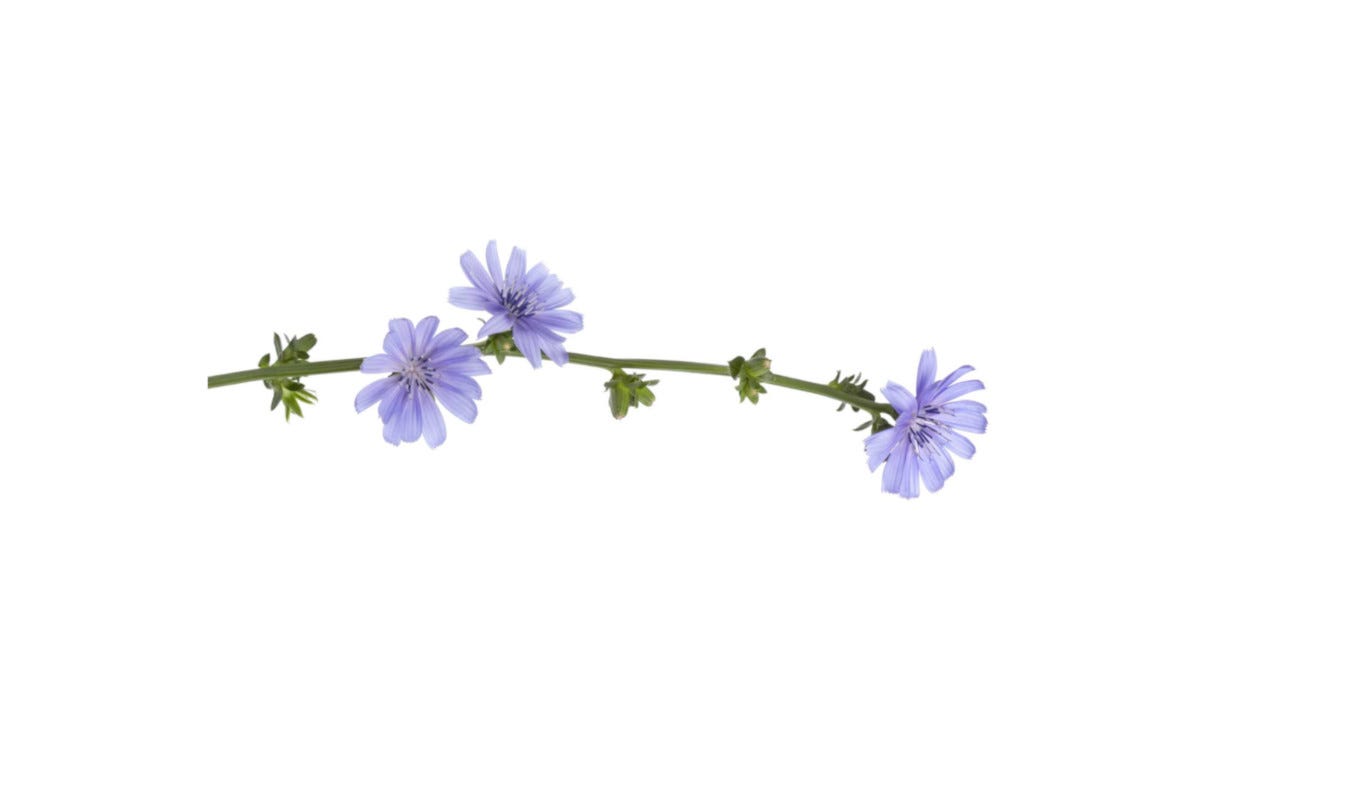
Sad I missed you on the 19th! Come to Madison again soon 🙏
The excerpt from the book was excellent. Do you believe it's possible to have multiple roles ina community like this? I can see myself in some of the descriptions, and not at all in others.